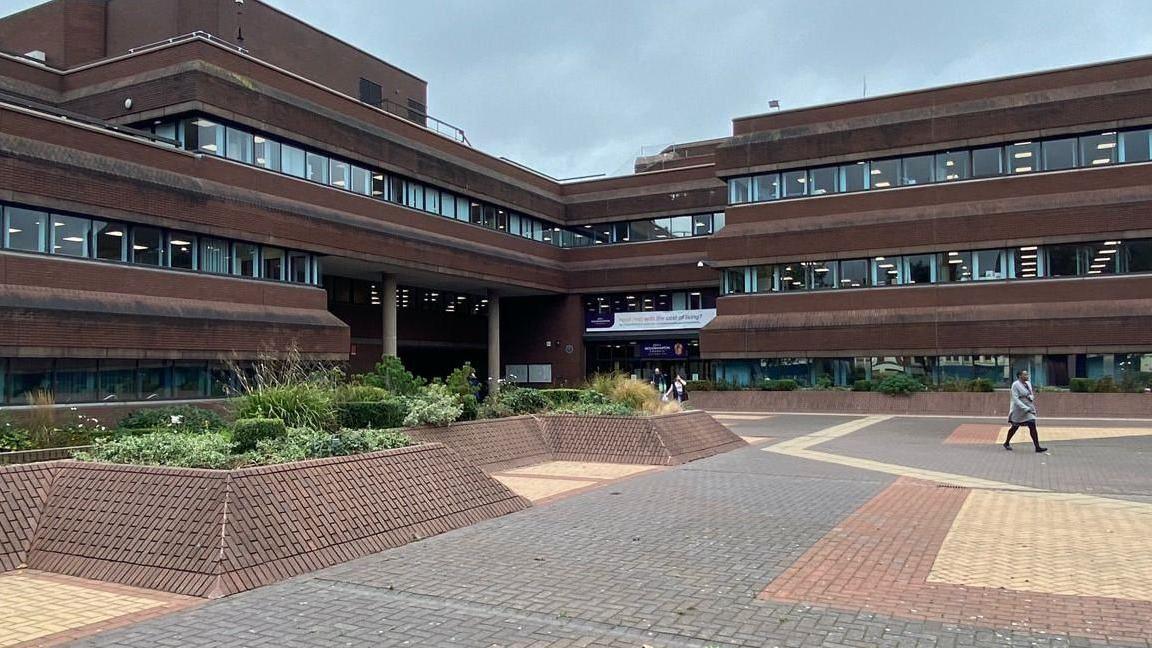A new fund to support Restorative Justice projects in the West Midlands is being launched by the police and crime commissioner. Grants totalling £375,000 will be available to organisations who work with victims, enabling them, if they want to face their offender, to explain how the crime has affected them. Restorative Justice (RJ) also gives ex-offenders the opportunity to make amends for their crimes and repair the harm they have done – by apologising, returning stolen money, or undertaking community service.
Ahead of the launch of the new initiative, David Jamieson visited Midland Heart housing association, one of the first recipients of a RJ grant, to see how the money has made a difference to local residents.
During the visit, which coincided with National Restorative Justice Week, David Jamieson said: “Restorative Justice can make a massive difference to victims of crime. Although you can never truly turn back the clock when a crime has occurred, Restorative Justice can go a long way to helping victims come to terms with what has happened and challenges offenders to rethink their behaviour. Such meetings only happen when they are requested by the victim and they are deemed safe to go ahead.
"Across the West Midlands we already have some excellent Restorative Justice groups who help facilitate the process. This new funding will help even more victims to access this support so that they can hopefully obtain closure and move on with their lives.”
Restorative Justice has been funded by the West Midlands Police and Crime Commissioner since 2013 when funding was transferred over from the Ministry of Justice.
The initiative often involves a conference, where a victim meets their offender face to face. Sometimes, when a face to face meeting is not the best way forward, the victim and offender will communicate via letters, recorded interviews or video instead.
Before a meeting can take place:
• The offender must accept responsibility for the crime
• Both the victim and the offender must be willing to participate
• An RJ facilitator must decide it is safe for both the victim and offender to be involved
Midland Heart has already run a pilot RJ project, thanks to a previous £65,000 grant from the Police and Crime Commissioner. As a result, the housing and care association has been able to offer support to a number of its residents and, since the introduction of the initiative, the association has seen a significant drop in low level crime such as anti-social behaviour.
Nigel Collumbell, Head of Neighbourhoods at Midland Heart said: "The Restorative Justice Project has been a great opportunity to work with our partners to resolve issues of low-level crime and antisocial behaviour much earlier on, preventing neighbours from becoming embroiled in bigger conflicts.
“We would highly recommend this approach to others as it fosters better community relations and changes the way neighbours interact with each other. This is a great example of the added value that housing associations can bring."
 The Phoenix Newspaper UK | Latest news in UK | Positive news | Inspiring The Next Generation
Inspiring The Next Generation
The Phoenix Newspaper UK | Latest news in UK | Positive news | Inspiring The Next Generation
Inspiring The Next Generation Check This Out
Related Items
Latest News
- Indians named the wealthiest Ethnic group in the UK...
- Residents still have time to have their say on the council’s...
- University Lecturer brings forensic expertise to acclaimed T...
- ‘Adolescence’ shines at Golden Globes in L.A....
- This January, ditch the cleanse for real food...
- A season-by-season guide to the National Forest's living col...
- BE OPEN Regional Art steps into year four to support emergin...
- African Power Pools: How regional integration can strengthen...
- XPO renews support for Susan G. Komen 3-Day Walks as its off...
- Utilita Arena Birmingham prepares for Super League Basketbal...
- GNPC and R&D partnership signals Africa’s energy future is i...
- STARTRADER begins 2026 as Official Partner of the NBA...
- The Boutique Workplace Company selects Yardi Kube Space Mana...
- Charity cash hits new heights from Burton manufacturer...
- New data platform targets heart rhythm disorders...















